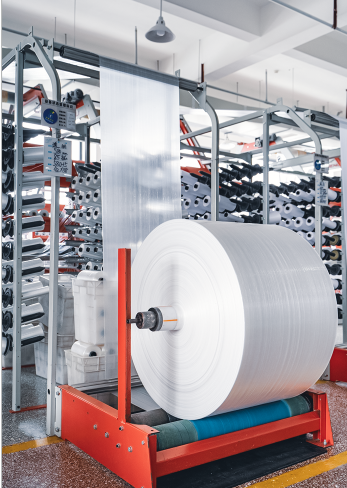Flexible Intermediate Bulk Containers (FIBCs), commonly known as bulk bags, can be reused and have a growing reputation for being both practical and environmentally friendly.
As industries shift toward sustainability, the recycling and reuse of bulk bags are becoming more widespread.
Many businesses are now looking for ways to reuse these bags, which reduces costs and helps minimize the environmental impact.
In this article, we’ll explore how bulk container recycling works and whether used bulk bags can be reused effectively.
Yes, bulk bags can be reused under certain conditions. The ability to reuse an FIBC bag depends on its design, material, and safety factor ratio (SFR).
A standard bulk bag has an SFR of 5:1, meaning it can hold five times its safe working load, but these bags are classified as single-use.
However, bags with a higher SFR, such as 6:1, are designed for multiple uses.
These multi-use bags can be part of a sustainable supply chain, which makes them more eco-friendly than single-use alternatives.
To safely reuse a bulk bag, it must undergo thorough inspection and cleaning.
The bag should only be reused within a “Closed Loop” system, meaning it is used for the same product or application it was originally designed for.
Liners, web ties, labels, and other parts may need to be replaced, and the bag’s history should be tracked to ensure it remains safe for future use.
If there is any sign of damage, dampness, mold, or contamination, the bag should not be reused and instead be considered for recycling.
While FIBC bags are designed to be highly durable, not all of them are waterproof.
Standard FIBCs are made from woven polypropylene, which is water-resistant but not fully waterproof.
If protection against moisture is needed, special liners can be added to the bags.
These liners create a barrier to prevent moisture from penetrating the bag, which makes them suitable for transporting moisture-sensitive materials.
Some FIBCs come with built-in liners, while others may require custom liners to be inserted based on specific requirements.
Waterproofing options vary depending on the application.
For example, industries dealing with chemicals or food products often require bulk bags with liners to prevent damage from liquids.
In contrast, standard bags without liners are typically used for construction materials or other dry goods.
Recycling and reusing bulk bags is an important part of reducing waste and minimizing environmental impact. There are several ways to give used bulk bags a second life:
Multi-use bulk bags can be reconditioned for future use through cleaning and refurbishment.
After the bags are emptied, they are inspected, and cleaned, and any damaged parts are replaced.
If the bag passes the necessary safety checks, it can be reused for transporting similar products.
Keeping a detailed record of the bag’s usage, including how many times it has been used, what products it has carried, and its condition, is critical for maintaining safety standards.
Once a bulk bag reaches the end of its usable life, it can be recycled.
Most FIBC bags are made from virgin polypropylene, which can be processed and repurposed into new plastic products.
Bulk bags are often sorted into different grades for recycling based on their condition.
For example, Grade A bags are clean and primarily white, while Grade C bags may be dirtier and more discolored.
After sorting, the bags are shredded, purified, and repurposed into granules that can be used to produce new plastic items.
Even if an FIBC can no longer be used for its original purpose, it can still be repurposed.
For instance, used bulk bags can be employed as large trash bags on industrial sites or for collecting recyclable materials.
This alternative use extends the bag’s lifespan before it is ultimately recycled.




